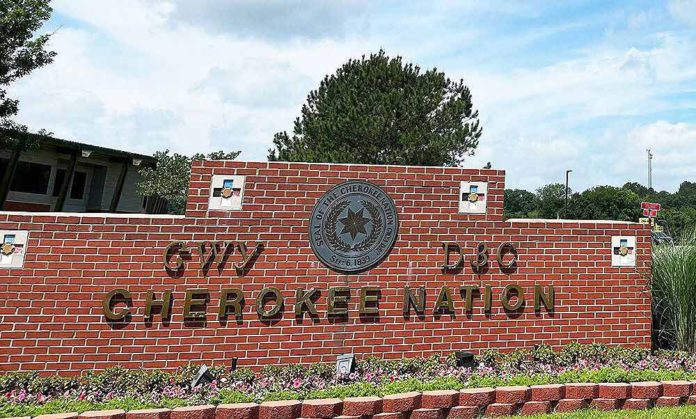TAHLEQUAH, OK – The Cherokee Nation Wildland Fire Program has been awarded a $10 million grant from the U.S. Department of Agriculture (USDA) to help reduce wildfire risks.
The Cherokee Nation Community Outreach Focus on Fuels Evaluation and Eradication Project focuses efforts on creating an informed, engaged public with the goal of producing a defensible space around community infrastructures. Over the next five years, the grant funding will allow Cherokee Nation’s Wildland Fire Program to purchase equipment needed to reduce wildfire risk and thinning, educate and train firefighters, as well as the communities they serve, and add 10 new fire mitigation personnel.
“This grant from the U.S. Department of Agriculture will enable us to expand our Wildland Fire Program, improving our already vigorous public safety response across the reservation,” said Principal Chief Chuck Hoskin Jr. “This project will allow us to focus on mitigating some of Cherokee Nation’s most vulnerable, at-risk communities against the danger caused by high wildfire risks.”
The project also supports workforce education and skills training activities that are directly connected to the demand for skilled labor in the business community, and will result in quality career opportunities for Cherokee citizens.
“We are always looking for ways to improve the safety of our communities here in the Cherokee Nation,” said Deputy Chief Bryan Warner. “This grant will help us expand our reach in the reservation and ensure more citizens are educated and protected from wildland fires.”
The grant was provided through President Biden’s Bipartisan Infrastructure Law and, in total, will fund 158 projects to help communities in 31 states, two territories and 11 tribes.
“We are incredibly grateful to the U.S. Department of Agriculture for its support of our Wildland Fire Program,” said Diane Kelley, Cherokee Nation Career Services Executive Director. “This funding will not only allow us to expand and strengthen our partnerships with state, federal and tribal collaborators to expand wildfire prevention and hazard mitigation strategies, but also protect underserved and vulnerable communities within the Cherokee Nation reservation.”














































